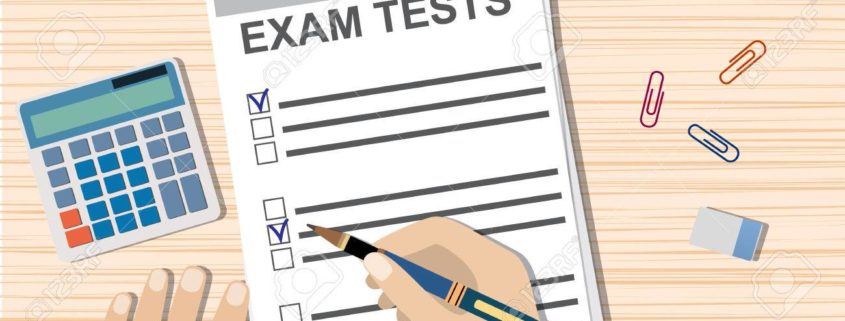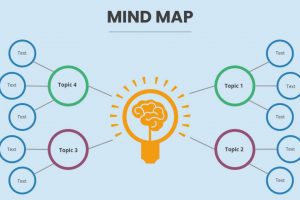
Exams are a universal part of the academic journey, and for American students, they are no exception. Whether you’re a high school student preparing for college entrance exams like the SAT or ACT, a college student facing challenging midterms and finals, or a graduate student preparing for comprehensive exams, the pressure to excel can be overwhelming. But don’t worry – in this comprehensive guide, we will explore a wide range of strategies and techniques tailored specifically for American students to help you not only survive but thrive in your exams.
Understanding the American Exam Landscape
Before we dive into the strategies, let’s first understand the diverse landscape of exams in the United States. American students encounter various types of exams, including standardized tests like the SAT, ACT, and GRE, as well as subject-specific exams, final exams, and certification exams. Each type of exam may require a slightly different approach, so it’s essential to familiarize yourself with the specifics of the exam you’ll be taking.
Know Your Exam Type: The first step in your preparation journey is to understand the type of exam you’ll be facing. Is it a standardized test, a subject-specific exam, or a comprehensive final exam? Knowing the type of exam will guide your study strategy.
Review the Exam Content: Go through the exam content outline or syllabus to identify the key topics and areas of emphasis that are likely to be covered.
Understand Scoring and Format: Familiarize yourself with how the exam will be scored and its format. Will it include multiple-choice questions, essays, or both? Understanding this will help you tailor your responses accordingly.
Creating an Effective Study Plan for American Students
Once you have a clear understanding of your exam, it’s time to create a study plan specifically tailored for American students. A well-structured study plan is the foundation of your preparation. Here’s how to do it effectively:
Set Clear Goals: Define specific, achievable goals for your study sessions. These goals could be based on chapters, topics, or skill areas you want to cover.
Create a Study Schedule: Allocate dedicated time for study in your daily or weekly schedule. Consistency is key, so stick to your plan as closely as possible.
Break It Down: Divide your study materials into manageable chunks. This makes it easier to tackle complex subjects and prevents overwhelm.
Use Technology: Leverage digital tools and apps to organize your study schedule, set reminders, and track your progress. Tools like digital flashcards and study apps can be incredibly helpful.
Practice Regularly: Regular practice through exercises, quizzes, or sample questions is crucial. Practice helps reinforce learning and improves retention.
Study Groups for American Students: Consider joining or forming study groups with fellow American students. Collaborative learning can provide fresh perspectives and help clarify doubts.
Review and Revise: Periodically review and revise previously studied material to keep it fresh in your memory.
Effective Learning Techniques for American Students
Now that you have a study plan in place, let’s explore some effective learning techniques tailored for American students that will enhance your understanding and retention of the material.
Active Learning for American Students: Passive reading or highlighting is often less effective than active engagement with the material. Try techniques like summarizing, questioning, and discussing to actively process information.
Visualization: Visual aids like diagrams, mind maps, and flowcharts can help you grasp complex concepts. Create visual representations of key ideas to aid in understanding.
Teach Someone Else: Explaining a concept to someone else, whether it’s a fellow American student, a friend, or a family member, can deepen your understanding.
Use Mnemonics: Mnemonic devices, such as acronyms or memory hooks, can be invaluable for remembering lists, sequences, or complex terms.
Spaced Repetition: This technique involves reviewing and revising material at increasing intervals. It capitalizes on the psychological spacing effect for improved long-term retention.
Mastering Time Management during American Exams
Time management during the exam is crucial for American students. Follow these strategies to maximize your efficiency during the test:
Read Instructions Carefully: Begin by reading all instructions and questions thoroughly. Understand what is being asked before you start answering.
Allocate Time: Divide the available time among the questions based on their complexity. Prioritize questions that carry more marks or require deeper analysis.
Flag and Return: If you encounter a challenging question, don’t get stuck. Flag it and move on to easier questions. Return to the flagged questions later if time allows.
Review Your Work: Once you’ve completed all questions, if time permits, go back and review your answers. Check for errors or areas where you can provide additional detail.
Stay Calm: Maintain a calm and focused mindset throughout the exam. Deep breaths and positive self-talk can help manage anxiety.
Putting It into Practice: Examples for American Students
Let’s consider two examples tailored for American students to see these strategies in action:
Example 1: SAT Preparation
Goal: Achieve a high score on the SAT.
Study Plan for American Students: Dedicate two hours daily for eight weeks leading up to the SAT. Allocate time for different SAT sections, including Math, Reading, and Writing.
Learning Technique: Actively practice SAT-style questions using official SAT study guides and online resources. Utilize SAT-specific strategies for each section.
Time Management for American Students: During the SAT, allocate time wisely, aiming to complete each section within the allotted time. Flag questions you find challenging and return to them if time allows.
Example 2: College Final Exams
Goal: Excel in final exams for college courses.
Study Plan for American Students: Create a study schedule that spans the entire semester, allocating time for each course’s materials. Plan for regular review sessions leading up to finals.
Learning Technique: Actively engage with course materials through group discussions, practice problems, and self-assessment quizzes. Utilize visual aids and summaries for complex subjects.
Time Management for American Students: During final exams, allocate time based on the weightage of each question or section. Prioritize essay questions that require more time and thought.
Potential Hazards and Benefits for American Students
Before we conclude, it’s essential to recognize both the potential hazards and benefits of exam preparation strategies for American students:
Potential Hazards for American Students:
Burnout: Overloading yourself with excessive study hours can lead to burnout and decreased efficiency.
Over-Competitiveness: The pressure to excel can lead to unhealthy competition and stress among American students.
Test Anxiety: The fear of exams can lead to test anxiety, affecting performance.
Procrastination: Poor time management can lead to procrastination, resulting in last-minute cramming.
Potential Benefits for American Students:
Improved Understanding: Effective study techniques enhance your understanding and mastery of the subject matter.
Enhanced Critical Thinking: Critical thinking and problem-solving skills are sharpened through active learning.
Increased Confidence: Thorough preparation boosts your confidence, reducing test anxiety.
Better Retention: Techniques like spaced repetition improve long-term retention of knowledge.
Conclusion for American Students
In the quest to excel in exams, American students have unique challenges and opportunities. Remember that success is a result of consistent effort, effective strategies, and a growth mindset. While exams can be challenging, they also provide an opportunity for growth and achievement. By understanding the diverse American exam landscape, creating a structured study plan tailored for American students, employing effective learning techniques, mastering time management during exams, and acknowledging both potential hazards and benefits, you are well on your way to not only surviving but thriving in your exams. Stay motivated, stay focused, and believe in your ability to excel. Good luck, American students!















Add Comment